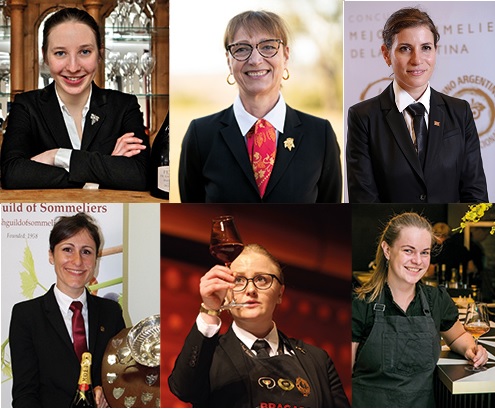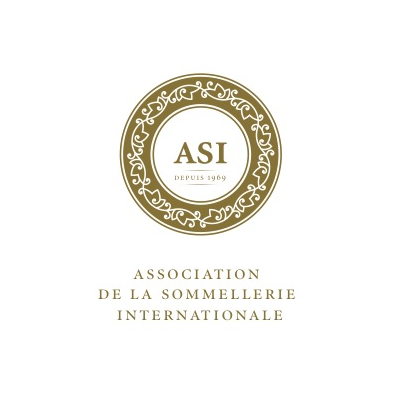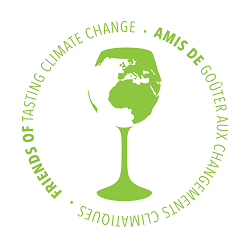There are more and more female sommeliers practising this fascinating profession and holding the keys to prestigious cellars around the world. Self-assured, they excel in sommelier competitions and form a community that many others could envy.
She is nicknamed “the palate of the Republic” because she is the head cellar master of the Elysée Palace. Virginie Routis, previously at The Bristol, has been monitoring and managing the 14,000 bottles of the French Presidential cellar since 2007. The Ritz reopened its doors in Paris in 2015 and it is a woman, Estelle Touzet, who took the helm of a team of six sommeliers responsible for that cellar’s 140,000 bottles. In New York at Le Bernardin and NoMad, the wine service is a women’s business. In Argentina, a mecca for female sommeliers, the national sommelier competition launched in 2002 has always been won by a woman (except in 2017) – the latest being Valeria Gamper – and the country’s first sommelier school was founded by Maria Barrutia. Paz Levinson, a highly awarded sommelier, trained here. When she joined the Anne-Sophie Pic group in 2018, she was the first female head sommelier of a three-star restaurant.
Although many are in working in high rank positions, it is difficult to give the exact number of female sommeliers per country. According to Association de la Sommellerie Internationale (ASI), females are the majority in Korea and Finland (52%) and not far from parity in certain regions of South America, Asia or Northern Europe – 35% in Japan, 30% in France, 21% in the Netherlands – but still poorly represented in Central Europe, Morocco or Cyprus. These statistics are on the rise, as more and more females undertake sommelier training. In France, the sommelier schools (more than 40) indicate that female students account for more than 50%. Arnaud Chambost (teacher of sommellerie at the François Rabelais Hotel and apprentice school in Dardilly and Meilleur Ouvrier of France (MOF) sommelier winner in 2000) started in 2002 with classes almost entirely full of boys; in 2020, there are many more female students asking to specialise in this promising profession. They are curious, efficient, dynamic and very involved in their studies, probably more than their male counterparts, he admits. Charlotte Guyot was one of his students two years ago. Not very confident but passionate and hard working, she won the title of Best Young Sommelier of France in 2018, the first female victory since inauguration of this competition in 2009. At the age of 25, she is now assistant head sommelier at the restaurant Le 1920 at Four Seasons in Megève near Mère Brazier (Lyon). A great start for Charlotte who has just entered the competition for the Best Sommelier of France 2020.
When they decide to enter the race, nothing stops them!
Another young female talent is Nina Jensen, a 26 year old from Denmark. She started competing in 2016 and three years later she won the silver medal at the [ASI] Best Sommelier of the World (BSOW) competition, just behind Marc Almert. Nina, with another young prodigy Estonian Ketri Leis, is following the lead of her peers from Northern Europe and of those female sommeliers from Sweden who, in the 1990s were opening the doors for other females. For Nina, men and women each practice the profession with their own style, but the difference between those who compete and those who don’t, can be encaptured with one key word: determination. Romanian Julia Scavo, 35 years old, shows similar determination. She has already achieved three top 12 positions in the BSOW competitions after starting to compete at the age of 24. Passionate about dance, theatre and lyrical singing, Julia, who compares sommelierie with her Ingres violins, entered the competitions to learn more and more, to push her limits, to find the right balance between technique and personality and to stay on top. She has just won the “Gérard Basset Memorial Prize” which rewards the top score in Unit 3 of the DipWSET.
A husband as a coach, her dining room as a training arena, hundreds of hours of research and study, physical training and daily mental preparation, this is the preparation program of the French-Irish Julie Dupouy for the world competition in which she has competed three times. And may the best sommelier win!
However, it has not always been easy to be a woman in a profession long thought to be reserved for men. Philippe Faure-Brac, president of UDSF, tells us that in his Parisian restaurant (Le Bistrot du Sommelier) in the 1990s, he had to “fight” with certain customers that the wine list could be presented to them by a woman. And he reminisces the French pioneers of the profession: Danièle Carré Cartal, the first woman to win the Best Sommelier of France in 1978, and Maryse Allarousse, then 53 years old, in the semi-final with him at the 1992 BSOW competition in Rio which he won. They are examples for a whole generation of young women who bravely become sommeliers and establish themselves in a professional environment with a very “macho” reputation.
Philippe Faure-Brac continues, “women have the strength to analyse and communicate with passion when talking about wine that men rarely have”. Anne-Sophie Pic recalls “this feminine vision of wine” when she talks about Paz Levinson, her head sommelier who is also a writer and a poet. Sophie Mirande is the first female UDSF Maître Sommelier in Corsica and has just been elected president of the regional association. Men and women, she says, taste and describe wine or alcoholic beverages differently. A woman “sells dreams with passion” whereas a man will more likely be more technical.
For Pascaline Lepeltier, a philosophy graduate and a double winner of two French competitions (MOF and Best Sommelier of France) in 2018, wine is also an art of language. She still regularly practises her tasting and verbal skills; an asset in her job and in competitions. Pascaline also points out a trend: in 2020, in New York where she works, wine no longer divides men and women but generations. The Millennials are breaking the rules when it comes to wine, in the city known for the #MeToo movement and in a market where socio-ethics increasingly influence purchases.
The importance of the seniors…
All these female competitors, whether they are already established in the international competitions or are about to be, recall the importance of their predecessors and mentors. For Pascaline, they are Canada’s “top sommeliers”, Véronique Dalle, Elyse Lambert and Véronique Rivest. Julie Dupouy trained with Paz Levinson. Michèle Chantôme, Secretary General of ASI, who knows them all, says that in the 2000s women from all over the world were beginning to compete on the international stage, driven by the performances of these trailblazers. One example is Swiss Myriam Broggi who had gained a semi-finalist placing each year at the Ruinart Trophies for the Best Sommelier of Europe and at the world competitions since 1988 until in 1994 she finished as the first woman to win the European competition. Canadian Véronique Rivest has competed in three BSOW competitions and she never goes anywhere without her “suitcase full of books”. She came very close to winning the title in 2013, cheered by her entire country that followed her live on social networks. Then on the eve of her 50th birthday, she decided to hang up her competition apron so that she could finally devote herself to other projects. She also discovered the pleasure of coaching the younger generation. Paz Levinson spent a month training with her before the 2016 BSOW competition and Pascaline Lepeltier is due to do the same.
There are still (too) few women entering international competitions. There were only eight female candidates out of sixty-six at the 2019 Best Sommelier of the World, and we already know that France will have no female representation at the 2020 Best Sommelier of Europe and Africa competition next November [in Cyprus]. However, there is hope that this new decade will be more feminine! The youngest [female competitors] ones like Ketri Leis, Nina Jensen or the 22-year-old Dayana Nassyrova (Kazakhstan) are already on the starting blocks. As for the more experienced ones, nothing predicts that we won’t see them on the podiums again … Who will be the next Best Sommelier of the World in 2022 in Paris?
#femaleBSOW2022
Quotes
Ketri Leis (Best Sommelier of Estonia 2016-2019)
“I believe that the world is moving away from pointing a finger at someone’s sex. Meaning that the doors are open to everybody with the passion and willingness to be who they want to be. No difference if I am a woman or a man.”
Aldo Sohm (Wine director of restaurant Le Bernardin, NYC)
“By having an all-female team all of a sudden you have no more ego. [There is] No ‘I sold the bigger bottle than you’—that’s completely irrelevant. No, they share with each other. They communicate much better with each other. So, this [female] dynamic is the culture now, and it remains even so when we add in a few junior men.”
Source Daily Beast – April 2019
Sören Polonius (Wine director at Adam & Albin group/Founder Swesomm) on competitions
“Male sommeliers often tend to have “thicker skin”, able to take a harder beating. But at the same time, the determination of a woman is very strong, and I´ve seen a lot of female sommeliers going down fighting til the bitter end, never giving up. Fierce, like a female bear defending her cub.”
Their achievements
Myriam Broggi-Praz (Switzerland): Best Sommelier Switzerland 1987; Semi-finalist Best Sommelier of the World Competition 1989; 3rd at the Best Sommelier of Europe 1994 and semi-finalist in 1992, 1990 and 1988.
Julie Dupouy (Ireland): 8th in the Best Sommelier of the World 2019 and 3rd in 2013; Best Sommelier of Ireland 2015, 2012 and 2009, Semi-finalist Best Sommelier of France 2008.
Valeria Gamper (Argentina): Best Sommelier of Argentina 2019; 4th at the Best Sommelier of the Americas 2018
Nina Jensen (Denmark): 2nd at the Best Sommelier of the World 2019; Best Sommelier of Denmark 2019 and 2017.
Ketri Leis (Estonia): Best Sommelier of Estonia from 2016 to 2019. (She will represent her country at the Best Sommelier of Europe and Africa in November 2020 in Cyprus.)
Pascaline Lepeltier (France): Best Craftsman of France Sommellerie and first female Best Sommelier of France in 2018 (a historical double victory for the lady who became the first woman to win the two national competitions).
Paz Levinson (Argentina): Best Sommelier of the Americas 2015; Best Sommelier of Argentina 2014 and 2010; 5th at the Best Sommelier of the World 2016.
Dayana Nassyrova (Kazakhstan): 2nd at the Best Sommelier of Kazakhstan 2018. Represented her country in the Best Sommelier of Asia Oceania 2018 and Best Sommelier of the World 2019.
Véronique Rivest (Canada): Best Sommelier of the Americas 2012; Best Sommelier of Canada 2006; 2nd at Best Sommelier of the World 2013; placed in the top 10 at Best Sommelier of the World in 2007 and 2010.
Julia Scavo (Romania): Best Sommelier of Romania 2018; first female Master of Port in 2017; Best Sommelier of Central Europe 2012; 3rd at the Best Sommelier of European 2013 and 2017; 5th at the Best Sommelier of the World; Semi-finalist at Best Sommelier of Europe 2010.

Article first appeared in SommelierS International edition No. 167, written by Valérie Massot Germe. Additional translation by Elina Hannuksela, Sommeliers Australia.







